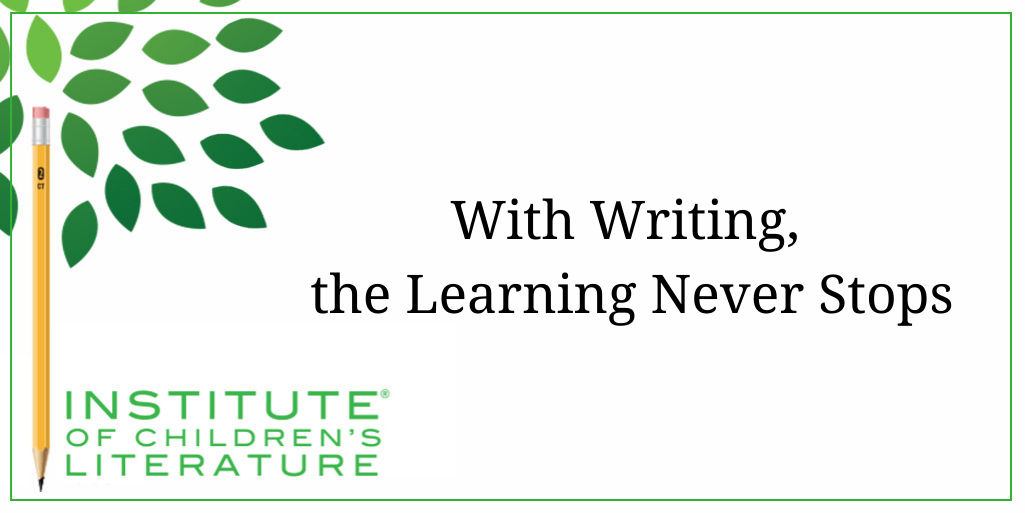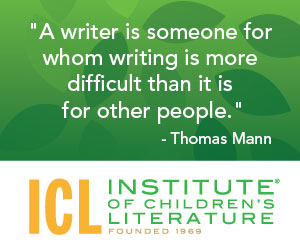
5 Ways Writers Can Prep for 2025 Goal Setting
Before we roll on to the new writing year, let’s harness our optimism for the blank slate before us and prepare for our 2025 Goal Setting just for writers.

We teach our students how to write and get published!
View our Course Catalog >
As I’ve said many times in these essays, writing is a journey. It can be created purely as a personal exercise by those who write because it offers a kind of therapy, a healing pain, and a joyful discovery. It can be made for public consumption by those who write for magazines and craft books. It can be some mixture of the two where sometimes you focus on private writing and sometimes on public writing. But whatever the journey entails, it always includes learning. To write is to learn. And every piece of writing you do will teach you something if you let it.

My writing journey took a long time. Years and years of writing and submitting and reading about writing and studying published works and trying to apply what I learned. I got better. I learned more about the business. But it was slow going. I had to track down the information on my own and evaluate the value of each piece of information on my own. I made mistakes and took routes that stalled my progress, but I was serious and I kept going. Today, I make a living from writing, but the process was incredibly slow.
I often hear of people who sell their first book shortly after getting an MA in Creative Writing, or who attend a workshop that lets them make a connection that opens a door to first publication for them. I have heard writers say that taking courses, specifically ICL courses, shaved years off their writing journey. That’s what good courses do. They exchange money for time. I didn’t have the money so I had to spend the time, more time than I would have needed if I’d taken the courses and workshops and gotten the feedback to shorten the journey. I’m proud of where I am today, but I wouldn’t have minded getting here ten years earlier.
Paid learning can include courses that offer step-by-step progress toward mastery of skills needed for publication. Courses usually include assignments and critique. A serious writer can stick to the schedule, follow the assignments carefully, and pour over the critique to apply whatever it says to future work. For the writer who knows they are at a place where time commitment for that kind of course is doable, and who can set aside their ego enough to hear feedback and apply it, there are definite benefits to structured writing courses, whether in person or through distance learning. Courses offer incremental growth, identification of weaknesses and strengths, and clear, specific feedback on progress.
One thing a writer needs before jumping into that kind of commitment is a plan. First, you need to know that you can invest the time you’ll need for the course. The course can’t do anything for you if you are too exhausted to process what you are told, or too busy to do the assignments. Also, you need to be sure your basic skills are such that you can learn from written instruction (including critique) and that your basic English grammar is relatively solid. If you’re not yet at a spot where you can write coherent prose, you’re probably not ready for a course yet.
Workshops can be both standalone offerings and parts of larger events like writing conferences. Many workshops include only instruction (though some offer critique if attendees pay extra). A few (such as the Highlights Foundation workshops) usually do include a level of critique for attendees without additional payment. Workshops are often targeted to specific skill building, so can be especially useful for writers who have achieved a measure of growth, but need help in specific areas.
Workshops usually require less time commitment than courses, so they can be helpful for writers who want small boosts forward but don’t have the time to commit to lengthy courses. Face-to-face workshops also offer the value of socializing with other writers who are learning and growing. This can be far more beneficial than many of us realize. Knowing that you’re not alone on the journey and that others are facing the same challenges is encouraging, as is having a chance to talk with others who truly understand what you’re going through because they’re going through it too. Close, lasting friendships can grow out of workshop experiences.
Writing retreats are another growth option for writers. These usually offer little if any specific instruction but are more focused on giving a writer time away from the pressures and distractions that get in the way of our productivity. Many retreats also offer an element of socialization with other writers at the retreat, such as shared meals. These social times aren’t meant to get in the way of the writing time but are instead meant to encourage and inspire more writing. Writer’s retreats work best for writers with solid skills who mostly need a jump start in focus or need time to complete a specific project.
Whatever learning experience a writer chooses, the value received is often a matter of commitment, seriousness, and focus. Choosing a specific method of study isn’t “proof” of seriousness, but serious commitment to learn through the method you’ve chosen will reap the most benefits. But keep in mind, this attitude of commitment, seriousness, and focus is essential to growth. No one has the right attitude all the time, but when you do, that’s the time to charge ahead in your growth as a writer through whatever learning choice feels right for you and race to your personal goal. And that, can be priceless.
With over 100 books in publication, Jan Fields writes both chapter books for children and mystery novels for adults. She’s also known for a variety of experiences teaching writing, from one session SCBWI events to lengthier Highlights Foundation workshops to these blog posts for the Institute of Children’s Literature. As a former ICL instructor, Jan enjoys equipping writers for success in whatever way she can.

Before we roll on to the new writing year, let’s harness our optimism for the blank slate before us and prepare for our 2025 Goal Setting just for writers.

Writers can be thin-skinned when it comes to getting feedback on their work. Let’s look at 4 ways to positively deal with constructive criticism!

Rejection is part of the territory when it comes to being a writer. Today we offer reflection for writers to help redirect your efforts after a rejection.
1000 N. West Street #1200, Wilmington, DE 19801
© 2024 Direct Learning Systems, Inc. All rights reserved.
1000 N. West Street #1200, Wilmington, DE 19801
© 2024 Direct Learning Systems, Inc. All rights reserved.
1000 N. West Street #1200, Wilmington, DE 19801
© 2024 Direct Learning Systems, Inc. All rights reserved.
1000 N. West Street #1200, Wilmington, DE 19801
© 2024 Direct Learning Systems, Inc. All rights reserved.

1000 N. West Street #1200, Wilmington, DE 19801
© 2025 Direct Learning Systems, Inc. All rights reserved.

1000 N. West Street #1200, Wilmington, DE 19801
©2025 Direct Learning Systems, Inc. All rights reserved. Privacy Policy.
3 Comments